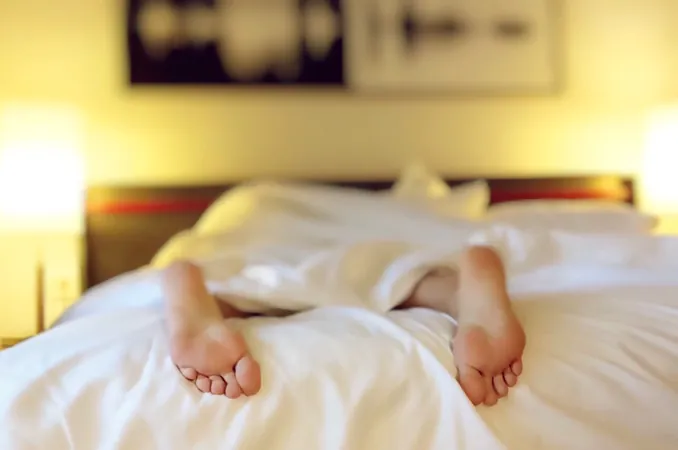
Is Insomnia and Sleep Medication Sabotaging Your Daily Life? Discover the Startling Connection to Disability in Older Adults!
2025-04-17
Author: Wei Ling
The Rising Tide of Insomnia Among Seniors
Insomnia is haunting many older adults—afflicting nearly 50% of those aged 65 and over. A groundbreaking study from researchers at Penn State College of Health and Human Development and Taipei Medical University delves into the alarming connection between insomnia, sleep medication use, and growing disability risk among seniors.
A Shocking Link: Increased Disability with Sleep Issues
The findings are nothing short of eye-opening. For every additional year an older adult suffers from insomnia symptoms, their likelihood of facing disability in daily activities escalates by a staggering 20%. Even more unsettling, the regular use of sleep medications brings a comparable risk. Those who grapple with both insomnia and medication dependency face the highest danger of becoming disabled.
Understanding The Study: Data That Demands Attention
The researchers meticulously analyzed data from over 6,700 participants in the National Health and Aging Trends Study (NHATS)—a critical resource capturing insights from Medicare beneficiaries. Utilizing more than 22,000 observations collected from 2011 to 2015, researchers highlighted that worsening insomnia symptoms and medication reliance lead directly to accelerated disability progression.
Measuring Disability: A Closer Look
Disability was gauged through a validated questionnaire addressing self-care and mobility tasks, from dressing to moving around. Participants were categorized based on their ability to perform these actions, revealing that any score increase of two or more indicated a clinically significant decline in their functional capacity.
The Numbers Don't Lie: The Real Impact of Insomnia
The results were telling: for each level of increased insomnia symptoms, participants saw an average rise of 0.2 in disability scores the following year. Similarly, increased sleep medication use correlated with a 0.19 rise in scores. A senior escalating their sleep medication use from 'never' to 'every night' could likely face substantial disabilities within just five years.
Falls and Insomnia: A Dangerous Combination
Prior research connects sleep medication use to heightened fall risks among seniors—an alarming factor contributing to increased disabilities, as detailed by study co-author Orfeu Buxton. Insomnia is not just a sleep issue; it poses significant risks to overall well-being.
Taking Charge: The Need for Better Sleep Solutions
The message from the researchers is clear: effective treatment of insomnia is crucial. Soomi Lee highlights the importance of discussing sleep issues with healthcare providers to explore alternatives to medication that can manage insomnia safely.
Cognitive Behavioral Therapy: A Game Changer for Insomnia
One beacon of hope? Cognitive Behavioral Therapy (CBT). This safe and effective method helps individuals reshape their approaches to sleep disturbances, offering a promising solution for many seniors struggling with sleepless nights.
Don't Let Insomnia Ruin Your Golden Years!
Many older adults mistakenly believe that sleep disruptions are merely a part of aging, but this isn't the case. Insomnia must be addressed directly—with open discussions with healthcare professionals. Given the shortage of sleep clinics, particularly in rural areas, seniors must advocate for their health and seek appropriate treatment.





 Brasil (PT)
Brasil (PT)
 Canada (EN)
Canada (EN)
 Chile (ES)
Chile (ES)
 Česko (CS)
Česko (CS)
 대한민국 (KO)
대한민국 (KO)
 España (ES)
España (ES)
 France (FR)
France (FR)
 Hong Kong (EN)
Hong Kong (EN)
 Italia (IT)
Italia (IT)
 日本 (JA)
日本 (JA)
 Magyarország (HU)
Magyarország (HU)
 Norge (NO)
Norge (NO)
 Polska (PL)
Polska (PL)
 Schweiz (DE)
Schweiz (DE)
 Singapore (EN)
Singapore (EN)
 Sverige (SV)
Sverige (SV)
 Suomi (FI)
Suomi (FI)
 Türkiye (TR)
Türkiye (TR)
 الإمارات العربية المتحدة (AR)
الإمارات العربية المتحدة (AR)